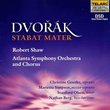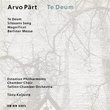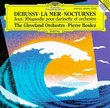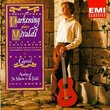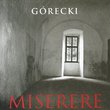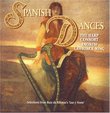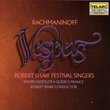| All Artists: Joan Jeanrenaud, Dun Tan, Kronos Quartet, David Harrington, Hank Dutt, John Sherba, Wu-Man Zheng Title: Tan Dun: Ghost Opera Members Wishing: 0 Total Copies: 0 Label: Nonesuch Release Date: 3/18/1997 Genre: Classical Styles: Opera & Classical Vocal, Chamber Music, Historical Periods, Classical (c.1770-1830) Number of Discs: 1 SwapaCD Credits: 1 UPCs: 075597944525, 075597944563 |
Search - Joan Jeanrenaud, Dun Tan, Kronos Quartet :: Tan Dun: Ghost Opera
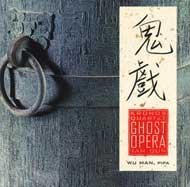 | Joan Jeanrenaud, Dun Tan, Kronos Quartet Tan Dun: Ghost Opera Genre: Classical
Written by Chinese composer Tan Dun, this is a dramatic five-movement composition for string quartet and pipa (a relative of the lute), with vocalizations and percussive effects from water, metal, stone and paper, performe... more » |
Larger Image |
CD DetailsSynopsis
Product Description Written by Chinese composer Tan Dun, this is a dramatic five-movement composition for string quartet and pipa (a relative of the lute), with vocalizations and percussive effects from water, metal, stone and paper, performed on this recording by Wu Man. Genre: Classical Music Media Format: Compact Disk Rating: Release Date: 18-MAR-1997 Similarly Requested CDs
|
CD ReviewsOpposites Attract Vargiu Riccardo James | Bologna, Italy | 07/01/2000 (5 out of 5 stars) "Ghost Opera was my first Kronos Quartet CD, and I loved it right from the start, though it took some time for me to understand it in depth - and have I really understood it after all? (As with all complex works of art, one never can tell.)In my opinion, the first thing one who wishes to get to know Ghost Opera should do is just lie down - eyes tightly shut - and listen to it, without any expectations, letting the music taunt one's senses at first, and then relieve them... Oppose no resistance - it might be painful at the beginning, but that will make it all the sweeter in the end. Once the senses have adapted to this extraordinary music, its apparently undecipherable code will suddenly become clear and the message Tan Dun wished to convey will start making sense at last.To me this CD is about anxiety and calmness, violence and peace, life and death. One will decide what the meaning is for oneself, of course: what matters is that a meaning will come. Bach and Tan Dun, the past and the present, do come together, and the result is something extremely sophisticated and fresh at once, something altogether mesmerizing.I have no authority to say so, but I think Ghost Opera to be a most incredible achievement of contemporary classical music." A COLD, NEEDLE SPRAY SHOWER ON A HOT SUMMER'S DAY Josef Bush | Phoenix, AZ | 02/09/2007 (4 out of 5 stars) "I'm fortunate because I brought to the first hearing of Tan Dun's GHOST OPERA, a love of string quartette music; a love of percussion music of all kinds; Cinese Opera music, as well as contemporary Avant-Guard compositions that incorporate drumming, strings and mixed sounds, including voice. Coming to GHOST OPERA with wide listening experience, allowed me to focus on the limited numbe and t ypes of instruments used, as well as on the non-instruments used to produce music, and to focus on the way these sources were chosen to form patterns. I did not expect melodies, and did not feel the need for them, yet when they came, though they very seldom appeared, I found I could enjoy them as arbitrary choices on the composer's palate.
There are five sectins in this GHOST OPER. Myself, I did not find the titles of these pieces anything other than irrelevant. The music, overall, is abstract, and nearly impossible to describe. All in all, if you enjoy to experience something very different from the usual, the hackneyed, this piece has much to offer. As a piece of chamber music it has everyting one hopes for; it is intimate, spare, compelling, dramatic, comic sometimes, and always demanding or challenging. It is ear candy, both sweet and sour -- a prickly confection -- and wuld sit well on a program with the latter Bartok quartets, or some Schoenberg or Berg equivalent. (German elecronic music of the 70s might appear more human, beside it.) The difference would be, perhaps, that whereas European quartets would be expected to sound well in an enclosed space or room, this (augmented) quartet suggests an enclosed space open to the sky. A garden, you see. Something to be played and listened to in a pavilion. This is music to clean the palate, so to speak; to scrape off of one's organs of perception, the mucus of the ordinary; the common place. This piece, like others of his pieces, help one experience the present more vividly. " |

 Track Listings (5) - Disc #1
Track Listings (5) - Disc #1